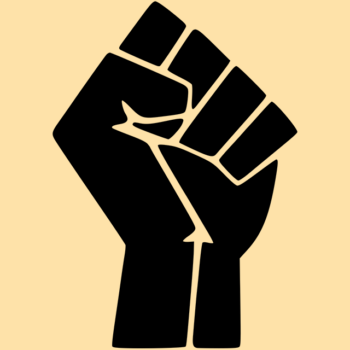Definition:
“Anarchy” means “without authority“.
Etymology:
The word “anarchy” derives from the Greek word “anarkhia,” which combines “an,” meaning “without,” and “arkhos,” meaning “ruler” or “authority.” Thus, “anarkhia” literally translates to “without ruler” or “without authority.”
Description:
Anarchy is a concept often associated with the absence of government or centralized authority. In an anarchic society, there is no overarching governing body or hierarchical structure to enforce laws or regulations. Instead, individuals are typically left to govern themselves and their communities through voluntary cooperation and mutual aid.
Anarchism, as a political ideology, encompasses a diverse range of beliefs and practices. While some anarchists advocate for a complete absence of all forms of authority, others propose alternative forms of organization, such as voluntary associations, direct democracy, or decentralized decision-making processes.
Anarchist thought often critiques hierarchical power structures, including capitalism, the state, and other forms of oppression. Anarchists typically emphasize individual freedom, autonomy, and voluntary cooperation, rejecting coercion and domination in all its forms.
Historically, anarchism has been associated with various social movements, including labor movements, anti-authoritarian uprisings, and grassroots organizing efforts. Anarchists have played significant roles in revolutions and social struggles worldwide, advocating for social justice, equality, and the abolition of oppressive systems.
However, the idea of anarchy is often misunderstood and misrepresented, with many who are pro-authority equating it solely with chaos or disorder. This is a lie told by authority to make the people fear what happens without authority. A manipulative tactic also known as “crisis manufacturing,” where someone creates a problem (often a fictional problem), then offer the solution.
Symbolism:
Articles:
Black Flag
Description: The black flag is a prominent symbol of anarchism. It is often displayed at protests, demonstrations, and other events as a symbol of resistance and solidarity. The black flag…
Circled-A
Description: The circled-A symbol is perhaps the most recognizable symbol of anarchy. It consists of a capital letter “A” enclosed within a circle. This symbol has been widely adopted by…
Molotov Cocktail
Description: The molotov cocktail, a crude incendiary weapon made from a glass bottle filled with flammable liquid and a cloth wick, has been used as a symbol of anarchist resistance…
Riot Gear
Description: Riot gear, including masks, helmets, and gas masks, is sometimes used as a symbol of resistance and direct action. These items are often worn by anarchists and other activists…
Solidarity Fist
Description: The solidarity fist, also known as the raised fist or clenched fist, is a symbol of unity, strength, and solidarity. It has been used by various social justice movements,…
The Black Cat
Description: The Black Cat, also known as The Black Cat of the industrial Workers of the World, is a symbol of anarchism that dates back to the late 19th century….
V for Vendetta Mask
Description: V for Vendetta mask, also known as The Guy Fawkes mask, popularized by the graphic novel and film “V for Vendetta,” has been adopted by some anarchists and activists…
Religion:
Religion tend to promote authority, and threaten the disobedient, unless it’s disobedience to someone who’s not promoting God.
In the Bible, in Romans, chapter 13, verses 1-7 (NIV), it says: “Let everyone be subject to the governing authorities, for there is no authority except that which God has established. The authorities that exist have been established by God. Consequently, whoever rebels against the authority is rebelling against what God has instituted, and those who do so will bring judgment on themselves. For rulers hold no terror for those who do right, but for those who do wrong. Do you want to be free from fear of the one in authority? Then do what is right and you will be commended. For the one in authority is God’s servant for your good. But if you do wrong, be afraid, for rulers do not bear the sword for no reason. They are God’s servants, agents of wrath to bring punishment on the wrongdoer. Therefore, it is necessary to submit to the authorities, not only because of possible punishment but also as a matter of conscience. This is also why you pay taxes, for the authorities are God’s servants, who give their full time to governing. Give to everyone what you owe them: If you owe taxes, pay taxes; if revenue, then revenue; if respect, then respect; if honor, then honor.”
In the Bible, in 1 Peter, chapter 2, verses 13-17 (NIV), it says: “Submit yourselves for the Lord’s sake to every human authority: whether to the emperor, as the supreme authority, or to governors, who are sent by him to punish those who do wrong and to commend those who do right. For it is God’s will that by doing good you should silence the ignorant talk of foolish people. Live as free people, but do not use your freedom as a cover-up for evil; live as God’s slaves. Show proper respect to everyone, love the family of believers, fear God, honor the emperor.”
In Hadith, in Sahih Muslim, Book 20, Hadith 4533, it says: “It is obligatory upon a Muslim to listen to and obey (the ruler) whether he likes it or not, as long as he is not ordered to commit sin. If he is ordered to commit sin, then there is no listening or obedience.”
In Hadith, in Sahih al-Bukhari, Book 56, Hadith 7142, the prophet Muhammed says: “Hear and obey (your ruler), even if he is an Ethiopian slave whose head looks like a raisin.”





